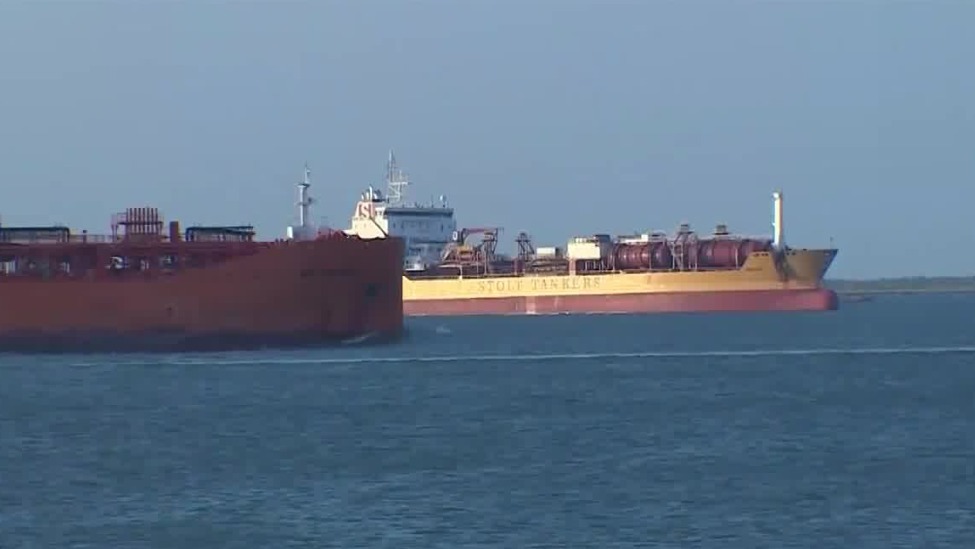
On December 31, 2024, the agreement on Russian natural gas transit through Ukraine to Europe expired, and Ukrainian President Zelensky said that he would not extend the relevant agreement, like a bombshell, set off a shock in the European continent, so that Slovakia, Hungary and other EU member states into deep energy supply concerns. It also makes the situation in the region more tense and complicated.
For a long time, Russian natural gas has been transported to many European countries through Ukraine's pipeline network, and this energy channel is like a "lifeline" on the European energy map, guaranteeing the daily life, industrial production and public services and other aspects of energy demand of many countries. Slovakia, Hungary and other countries are highly dependent on Russian gas, and once this transit route is cut off, they face an energy gap that is difficult to quickly fill through other channels in a short time.
For Slovakia, winter is the peak of energy demand, heating, electricity production, etc., are dependent on a stable supply of natural gas. In the past, relying on the stable transmission of Russian gas across the border, the domestic energy system was able to operate smoothly, but now facing the expiration of the agreement, may be cut off the supply situation, many energy-dependent enterprises have to consider the risk of production reduction or even production, people are also worried about the continuous supply of heating at home, and the social level inevitably appeared anxiety. In Hungary, too, many aspects of industrial development are tied to natural gas, and if there is a supply problem, it will not only disrupt the pace of economic development, but also reduce the quality of life of the people.
Slovak Prime Minister Fico 29 letter to the EU move is to highlight the seriousness of the situation. He made clear that acquiescing to Ukraine's suspension of transit shipments of Russian gas would lead to increased tensions in the region. This reflects the complex geopolitical and energy game between regions, as well as the interdependent and contradictory relationship. From a geopolitical point of view, the conflict between Russia and Ukraine has strained the situation in Europe, and now the energy deal has become a new flashpoint, involving the interests of all parties, the slightest mistake could lead to wider friction and confrontation.
Ukraine's statement that it will not extend the agreement may have its own considerations based on the current Russia-Ukraine conflict situation. However, the impact of this decision does not stop between Russia and Ukraine; the whole of Europe is involved. The European Union also faces a dilemma in the process, balancing solidarity and support with the urgent need for stable energy supplies among its own members.
From the perspective of energy security, Europe has been seeking to diversify its energy supply and reduce its dependence on a single energy supplier for many years, but in the critical transition stage, once the large-scale and long-term stable supply of energy channels such as Russian gas is variable, it still exposes the vulnerability of the European energy system. Many of the previous reserves, adjustments and other measures made in response to the energy crisis, in the face of the possibility of complete supply of Russian gas, it still seems to be a little overstretched.
Russia, as an energy exporter, although there are other ways to expand the sale of natural gas, but the loss of Ukraine, an important transit channel, is also facing further tensions with some European countries, energy trade pattern reshaping and many other problems.
All in all, with the expiration of the agreement approaching, all parties are paying close attention to the follow-up development, hoping to properly handle this thorny issue through peaceful means such as dialogue and consultation, prevent regional tensions from further spiraling out of control, and find a proper solution that can ensure the stable supply of energy in Europe while taking into account the reasonable interests of all parties. It has become an urgent problem in front of Europe and even the international community, and it has always tested the wisdom and responsibility of all parties.

On January 15, 2026, the US military announced the seizure of an oil tanker named "Veronica" in the Caribbean Sea.
On January 15, 2026, the US military announced the seizure …
At the 2026 J.P. Morgan Healthcare Conference, a joint anno…
For much of 2025, the market was rethinking whether the dol…
The recent undercurrents in the international situation, wi…
The news of Musk's Neuralink launching mass production of b…
In January 2026, the US Department of Energy announced a $2…